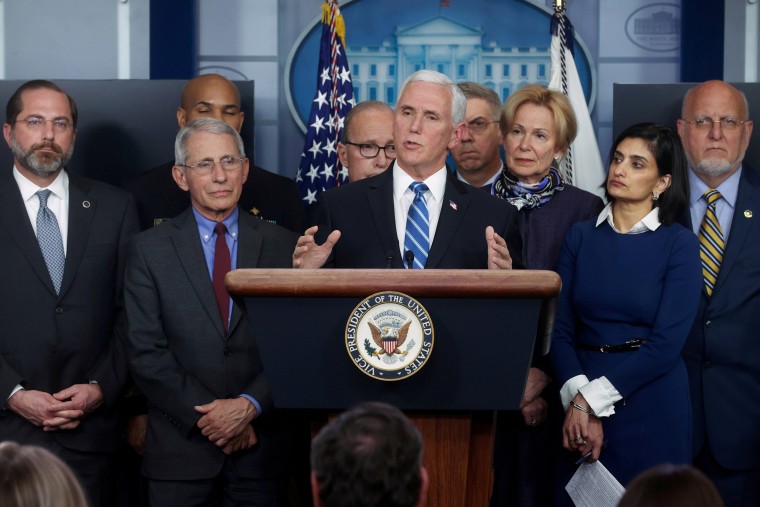Vice President Mike Pence, told the Wall Street Journal last week that he and the White House team "truly believe" that "by early June, we could be at a place where this coronavirus epidemic is largely in the past." Soon after, the Hoosier pointed to an even more ambitious point on the calendar.
"I truly do believe that if we all continue to do that kind of social distancing and other guidance broadly from federal and state officials, that we're going to put this coronavirus in the past," Pence said on Geraldo Rivera's radio show Friday. "I believe by early June we're going to see our nation largely past this epidemic.... I think honestly, if you look at the trends today, that I think by Memorial Day weekend we will have this coronavirus epidemic behind us," he added.
Memorial Day, in case you were wondering, is on May 25. Memorial Day weekend starts on May 23 -- which is just 27 days from today.
Finding a credible public-health expert who believes the crisis will be "behind us" in less than four weeks is extremely difficult, but there was the vice president -- the official leading the official White House coronavirus task force -- taking this message to a national broadcast audience anyway.
Pence wasn't alone in peddling overly rosy predictions. Treasury Secretary Stephen Mnuchin told Fox News yesterday morning, "You're going to see the economy really bounce back in July, August, and September." Most independent economic forecasters aren't nearly as optimistic.
Time will tell, of course, whether these predictions prove to be prescient or embarrassing, but given recent history, what surprises me is Pence's and Mnuchin's willingness to make the predictions in the first place. It was after all, a week ago today when Donald Trump said he believed the overall American death toll from the coronavirus could be as low as 50,000 people. By midday Friday, the president's forecast had already been exposed as tragically wrong.
It was hardly an isolated incident. As we regular readers know, Trump and his team have spent months, not only consistently downplaying the seriousness of the threat, but also making a bunch of predictions that didn't pan out.
In late March, the Washington Post's Dana Milbank wrote a rather brutal column on this, tying together many of the president's earlier declarations, each of which appear cringe-worthy in hindsight: "The coronavirus is very much under control in the USA. We have it totally under control. I'm not concerned at all. It's one person coming in from China. We pretty much shut it down.... We're in great shape. Doesn't spread widely at all in the United States because of the early actions that myself and my administration took. There's a chance it won't spread. It's something that we have tremendous control over. Looks like by April, you know, in theory, when it gets a little warmer, it miraculously goes away. One day it's like a miracle, it will disappear."
Let's also not forget that on Feb. 26, Trump told the public, "[W]hen you have 15 people, and the 15 within a couple of days is going to be down to close to zero, that's a pretty good job we've done."
With a track record like this, wouldn't curtailing happy-talk predictions be a smart move? I suspect White House officials are trying to generate some optimism, but when their bold promises fall far short, doesn't it end up producing the opposite effect?

